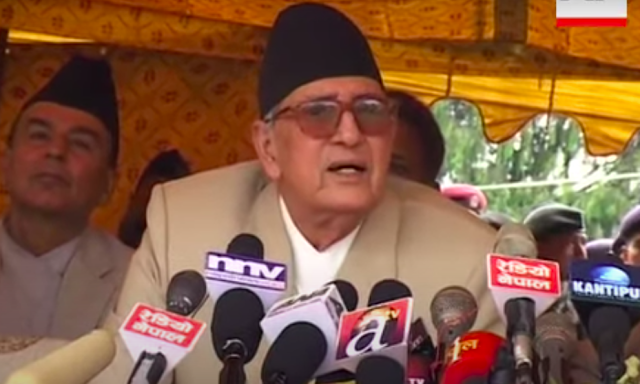
Photo Source: Scriptedinfo/Girija Prasad Koirala
Girija Prasad Koirala (4 July 1924 – 20 March 2010), affectionately known as Girija Babu, was one of Nepal’s most influential and enduring political leaders. A founding member of the Nepali Congress Party, Koirala served as Prime Minister of Nepal on five occasions and played a key role in transitioning the nation from monarchy to federal democratic republic. His legacy as a champion of democracy, peace, and inclusion remains deeply etched in Nepal’s modern political history.
Quick Facts
-
Full Name: Girija Prasad Koirala
-
Born: July 4, 1924 – Saharsa, Bihar, British India
-
Died: March 20, 2010 (aged 85) – Kathmandu, Nepal
-
Political Party: Nepali Congress
-
Titles Held:
-
Prime Minister of Nepal (1991–1994, 1998–1999, 2000–2001, 2006–2008)
-
Acting Head of State (2007–2008)
-
-
Spouse: Sushma Koirala (d. 1967)
-
Children: Sujata Koirala
Early Life and Family
Girija Prasad Koirala was born into political exile in Bihar, India, due to his family's opposition to the autocratic Rana regime in Nepal. He was the son of Krishna Prasad Koirala, a noted political thinker and early proponent of democracy in Nepal. His family, particularly his brothers Matrika Prasad Koirala and Bishweshwar Prasad Koirala, would go on to play pivotal roles in shaping Nepal's democratic journey.
Despite modest formal education due to political instability and exile, Girija was exposed early to political activism and leadership, which shaped his future.
Political Beginnings and Activism
Koirala began his political journey during the 1940s by engaging in labor activism and trade unionism inspired by the Indian independence movement. He led the Biratnagar jute mill strike in 1947, which is considered Nepal's first major labor protest and a landmark in its political awakening.
In 1948, he founded the Nepal Mazdoor Congress (now Nepal Trade Union Congress-Independent). He officially joined the Nepali Congress and was a key figure in the 1950–51 revolution that overthrew the Rana regime and restored democracy.
Exile and Struggles
Following the 1960 royal coup by King Mahendra, which dissolved the democratic parliament, Koirala was imprisoned and later exiled to India. He spent nearly two decades in exile, organizing democratic resistance and continuing political education.
He returned to Nepal in 1979 and helped lead the People’s Movement (Jana Andolan) of 1990, which ended the Panchayat system and reinstated multiparty democracy.
Leadership and Governance
First Term (1991–1994)
-
Elected after Nepal’s first democratic elections in 1991.
-
Initiated liberal reforms in education, health, and media.
-
Founded Purbanchal University and B.P. Koirala Institute of Health Sciences.
-
Started the B.P. Koirala Memorial Cancer Hospital with aid from China.
Later Terms (1998–2001, 2006–2008)
-
Faced challenges such as internal party rifts and the Maoist insurgency.
-
Played a pivotal role in peace negotiations and the Comprehensive Peace Agreement of 2006.
-
Served as Acting Head of State during the monarchy's final years.
-
Oversaw Nepal’s transition to a federal democratic republic in 2008.
Major Contributions
-
1990 People’s Movement: Led efforts to dismantle absolute monarchy and establish a constitutional system.
-
2006 Peace Process: Brokered the peace agreement that ended the civil war.
-
2008 Republic Declaration: Presided over Nepal’s historic shift from a monarchy to a republic.
-
Democratic Reforms: Pushed for private sector growth and expanded access to education and healthcare.
Personal Life
Koirala married Sushma Koirala in 1952, who tragically died in 1967. They had one daughter, Sujata Koirala, who also pursued a political career and served as Foreign Minister of Nepal.
Despite his political power, Koirala was known for his simple lifestyle and deep connection to grassroots politics. He was a follower of Sathya Sai Baba, along with his daughter.
Legacy and Recognition
Girija Prasad Koirala is widely regarded as the "Father of Nepal’s Democracy". His leadership during some of the country’s most turbulent periods left an enduring impact on governance and civil rights.
Legacy Highlights:
-
Architect of modern democratic Nepal.
-
Symbol of resilience and pragmatic politics.
-
Honored posthumously with the title "Nepal Ratna", the country’s highest civilian award.
Conclusion
Girija Prasad Koirala’s contributions transcended political leadership. He was a unifier, a negotiator, and a visionary who believed in peaceful, inclusive transformation. His over six-decade-long commitment to democracy, civil liberty, and national unity cemented his place as one of Nepal’s most revered leaders.
“Democracy is not a gift; it is a struggle—and Girija Babu was its tireless warrior.”

Comments
Post a Comment